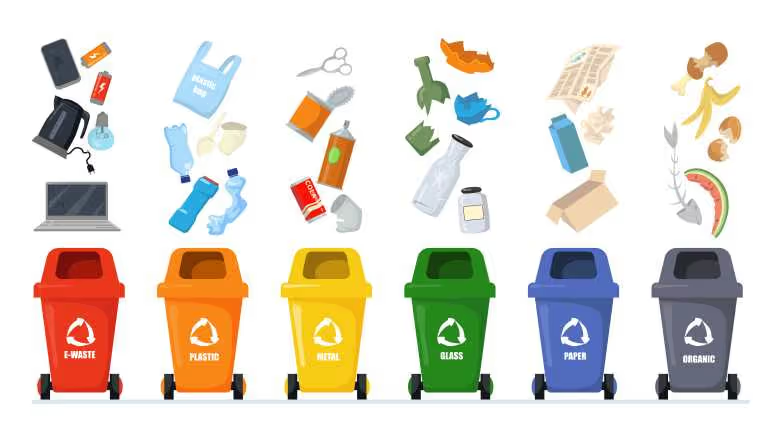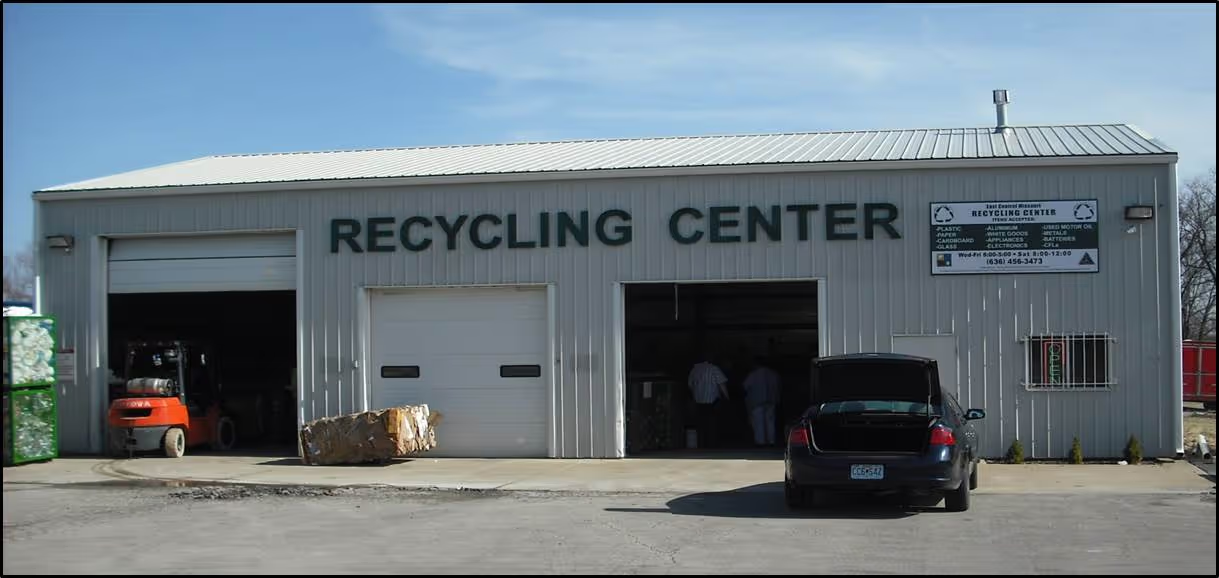Are you looking for simple and effective ways to make a difference in the world? One powerful way to contribute to a healthier environment is by incorporating recycling into your daily routine. Recycling not only helps conserve resources and reduce waste, but it also plays a crucial role in mitigating the impacts of climate change.
In this blog post, we will explore seven easy ways to make recycling a seamless part of your life. By following these tips, you can not only feel good about your environmental impact but also inspire others to join the sustainability movement. So, let's dive in and discover how small actions can lead to significant change.
1. Understand the Importance of Recycling

The term recycling has always been used in the media, workplaces, and all in all, in our everyday lives. But do you truly understand its importance?
Recycling is more than just separating your trash into different bins. It is a process that transforms waste materials into new products, reducing the need for raw materials and the energy required for production.
According to the Energy Information Administration (EIA), by far the https://www.eia.gov/energyexplained/use-of-energy/industry.php are chemicals, petroleum, and coal products. And by recycling, we can conserve resources, save energy, and prevent pollution.
Take some time to educate yourself on the benefits of recycling, and you'll be motivated to incorporate it into your daily routine.
2. Set up a Recycling Station in Your Home
Creating a designated space for recycling in your home is an essential first step. Find an area in your home, such as a corner of your kitchen or a spot in your garage, where you can set up a recycling station. Place separate bins or containers for different types of recyclable materials, such as paper, plastic, glass, and metal. Label each bin clearly to make it easy for everyone in your household to know where to dispose of their recyclables. By having a dedicated and organized space for recycling, you'll find it much easier to incorporate it into your daily routine.
3. Separate and Sort Your Waste
Once you have your recycling station set up, it's time to start separating and sorting your waste properly. This step is crucial to ensure that the recyclable materials are in their purest form and can be efficiently processed.
Take the time to familiarize yourself with what can and cannot be recycled in your area. Different municipalities have different recycling guidelines, so it's important to know the specific rules in your community. Educate yourself and your family on what can go in each bin and make it a habit to always separate your waste correctly.
Remember, recycling is a team effort, and each individual contribution counts. By sorting your waste correctly, you're not only reducing landfill waste but also making the recycling process more efficient.
One Pass That Does It All. Get Out And Play!
4. Opt for Reusable Items and Reduce Waste
One of the most effective ways to incorporate recycling into your daily routine is by reducing the amount of waste you produce in the first place. By opting for reusable items, you can significantly cut down on single-use plastics and other disposable materials.
Invest in a reusable water bottle, coffee mug, and shopping bags. Say no to plastic straws and choose products with minimal packaging. When grocery shopping, opt for loose produce instead of pre-packaged options. These small changes can make a big difference in reducing waste and conserving resources.
Remember, recycling is just one part of the sustainability puzzle. By reducing waste, you're tackling the root cause and making a more significant impact on the environment.
5. Find Local Recycling Centers and Programs

To make recycling a seamless part of your routine, it's important to be aware of the recycling centers and programs available in your local area. Take the time to research nearby drop-off locations, collection sites, and curbside pickup services.
Find out what materials are accepted at these facilities and familiarize yourself with any specific sorting requirements. Some recycling centers also offer programs for harder-to-recycle items, such as electronics, batteries, and household hazardous waste.
By knowing your local recycling options, you can easily incorporate them into your daily routine without any hassle or confusion. Make it a habit to visit these centers or utilize the pickup services regularly, ensuring that your recyclables are being properly processed and given a new life.
6. Educate and Involve Your Family, Friends, and Community
Recycling is not just an individual effort, but a collective movement. Get your family, friends, and community involved by educating them about the importance of recycling and inspiring them to take action.
Organize a recycling awareness event in your neighborhood or workplace. Share information and resources about recycling on social media or through local newsletters. Encourage others to join you in sorting and separating waste correctly. By spreading awareness and involving those around you, you can create a ripple effect and multiply the positive impact.
Knowledge is power, and by empowering others with information, you can lead the way towards a greener and more sustainable future.
7. Make Recycling a Habit
The key to successfully incorporating recycling into your daily routine is to make it a habit. Like any new behavior, it takes time and consistency to become second nature.
Start by setting specific goals for yourself, such as ensuring that all recyclable items are correctly sorted and disposed of every day. Make it a point to remind yourself and your family members to recycle regularly. Consider setting up reminders or creating visual cues, such as placing a recycling bin next to your trash can, to encourage consistent recycling habits.
With practice, recycling will become automatic, and you'll find yourself contributing to a cleaner, healthier planet effortlessly.
Conclusion
By following these seven easy tips, you can seamlessly incorporate recycling into your daily routine. Understand the importance of recycling, set up a recycling station in your home, separate and sort your waste correctly, reduce waste through reusable items, find local recycling centers and programs, educate and involve those around you, and make recycling a habit.
Remember, the small actions we take each day can lead to significant change. By becoming a recycling advocate in your community, you can inspire others to join the sustainability movement and create a positive impact on our planet. So, start today and make recycling a part of your daily life. Together, we can make a difference.
.jpg)
.jpg)
.jpg)